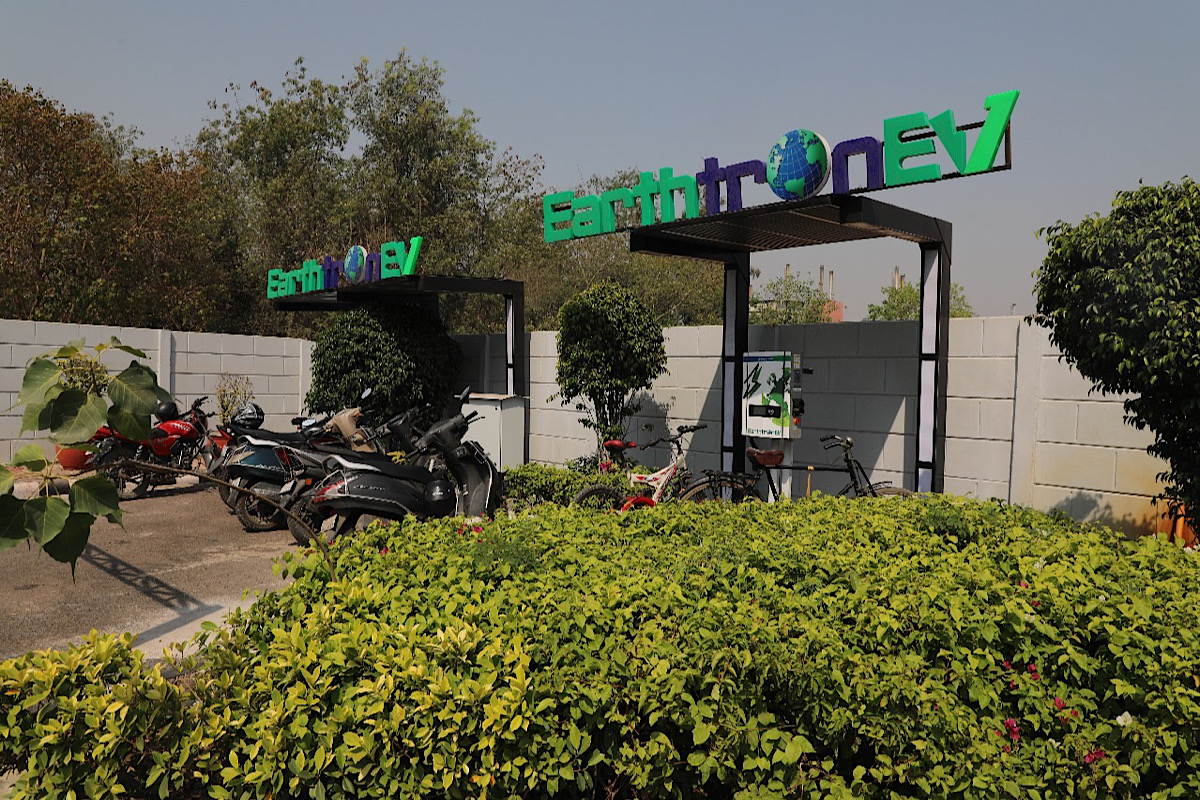NCRTC launches campaign to promote voting for LS polls
Passengers who cast their votes will be eligible for a complimentary upgrade to the Premium Coach from the standard coach as an incentive.
Situated at Gate Number 1 of the Sahibabad RRTS station, the newly operational EV charging station boasts a comprehensive array of charging units catering to various electric vehicle models.

(photo:SNS)
another stride towards its sustainability objectives, the National Capital Region Transport Corporation (NCRTC) has started operating the first Electric Vehicle (EV) charging station at Sahibabad RRTS station.
Situated at Gate Number 1 of the Sahibabad RRTS station, the newly operational EV charging station boasts a comprehensive array of charging units catering to various electric vehicle models.
Comprising three slow charging units, each delivering 3.3 kW, alongside a fast charging unit capable of providing 30 kW, the station ensures efficient and convenient charging experiences for commuters.
Advertisement
Electric vehicle owners will gain access to the EV charging facility via a dedicated mobile application, enabling them to monitor electricity consumption during charging sessions. Furthermore, users will have the convenience of paying for the electricity consumed per unit-wise through the same mobile application, with the added flexibility of online payment options.
“This step is one of the many measures for ensuring last-mile connectivity. Passengers will now have the comfort of bringing their electric vehicles to Gate Number 1 of the Sahibabad station, using the EV charging facilities, and getting their four-wheelers charged in just one hour using the fast charging facility. They also have the option of getting their four-wheelers charged in three hours and two-wheelers in one and a half hours using the slow charging facility. Passengers can ride on the Namo Bharat trains while their vehicles are being charged and use their fully charged vehicles to go to their destinations,” a spokesperson of the NCRTC said on Sunday.
In the near future, EV charging facilities will be extended to other operational RRTS stations, including Ghaziabad, Guldhar, Duhai, Duhai Depot, Murad Nagar, Modi Nagar South, and Modi Nagar North. This expansion will not only benefit RRTS passengers but also enable local residents to access this facility.
The NCRTC has been persistent in sustainability efforts, striving to minimise its ecological footprint since the inception of India’s first regional rail project implementation. With a steadfast dedication to environmental sustainability, the NCRTC aims to cover 70 per cent of the total energy requirement of the entire Delhi-Ghaziabad-Meerut RRTS corridor through solar energy. To achieve this, all elevated stations and depots will be equipped with solar panels, exemplifying the NCRTC’s proactive approach to clean energy adoption.
Furthermore, as part of its commitment to the National Solar Mission and the promotion of clean and sustainable energy sources, the NCRTC adopted a solar policy in March 2021. This policy outlines NCRTC’s goal to increase the share of renewable energy by generating about 11 MW peak in-house solar power on the rooftop of stations, depots, and other buildings for non-traction purposes over the next five years.
Advertisement